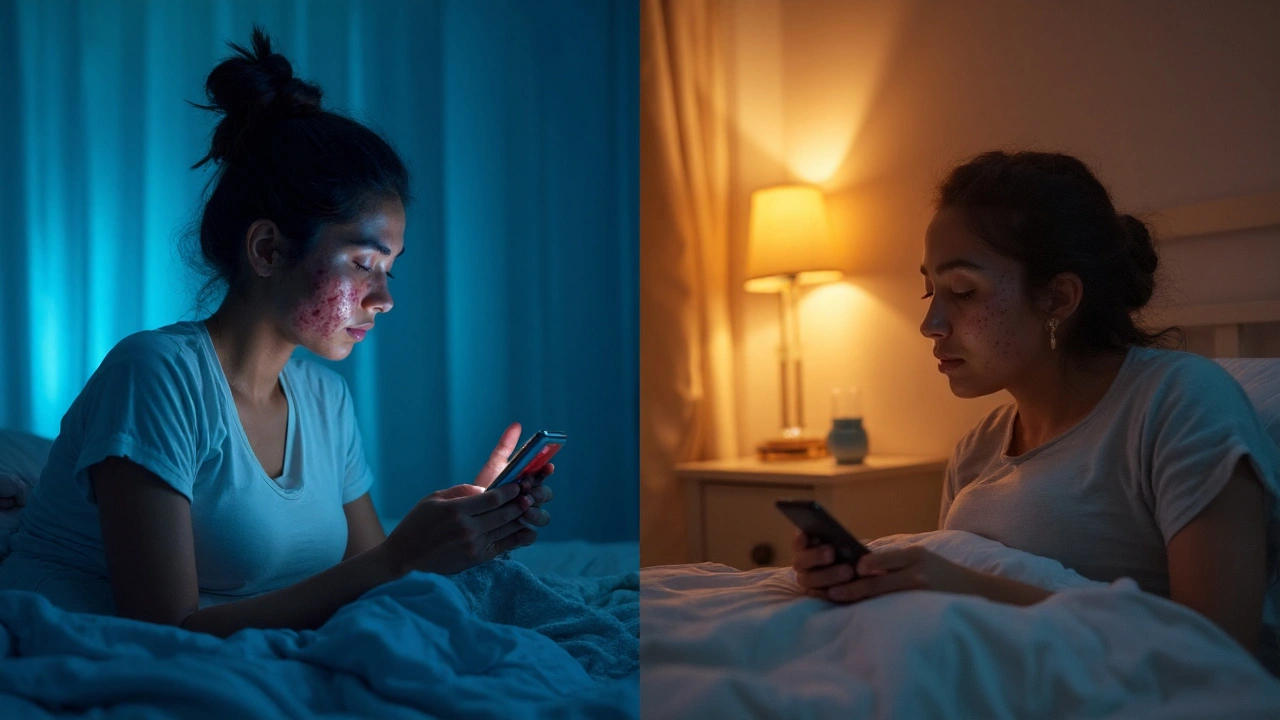Acne and Sleep: How Rest Impacts Your Skin
Ever notice a break‑out after a late night? You’re not imagining it. Sleep and acne are linked by hormones, inflammation, and skin repair. When you skip shut‑eye, your body produces more cortisol, a stress hormone that can trigger excess oil and clogged pores. Let’s break down why a good night’s rest matters for clear skin.
Why Sleep Matters for Acne
During deep sleep, your skin goes into repair mode. Blood flow increases, delivering nutrients that help heal existing lesions. At the same time, growth hormone spikes, boosting cell turnover and keeping pores unclogged. Lack of sleep disrupts this cycle, leaving inflammation unchecked. Studies show that people who get less than six hours a night have higher levels of inflammatory markers like IL‑6, which can worsen acne.
Another piece of the puzzle is the “skin barrier.” This thin protective layer keeps bacteria out and moisture in. Sleep deprivation weakens the barrier, making it easier for acne‑causing bacteria to thrive. Add to that the habit of touching your face more when you’re tired, and you’ve got a recipe for new pimples.
Practical Sleep Hacks for Clearer Skin
1. Set a consistent bedtime. Your body loves routine. Aim for 7‑9 hours and go to bed at the same time each night, even on weekends.
2. Dim the lights an hour before bed. Blue light from phones suppresses melatonin, the hormone that tells you it’s time to sleep. Switch to a book or use a blue‑light filter.
3. Keep your bedroom cool. A temperature around 65°F (18°C) helps you fall asleep faster and stay in deep sleep longer.
4. Avoid heavy meals and caffeine late in the day. Both can raise cortisol and keep you awake, leading to that late‑night oil surge.
5. Wash your face before bed. Removing makeup, oil, and sweat reduces the material that can clog pores overnight.
6. Use a silk pillowcase. It creates less friction, meaning you’re less likely to irritate existing pimples while tossing and turning.
7. Stay hydrated. Water supports the skin’s barrier function and helps flush out toxins that can trigger inflammation.
These habits don’t require a major lifestyle overhaul, but they do add up. Consistently good sleep can lower cortisol, improve barrier health, and give your skin the time it needs to heal.
If you’re already dealing with acne, pair these sleep tips with a dermatologist‑recommended treatment plan. Remember, skin improves gradually—don’t expect overnight miracles. Keep tracking your sleep patterns and skin changes; many people notice clearer skin after just a week of better rest.
Bottom line: Sleep isn’t just for feeling rested; it’s a key player in keeping acne at bay. Prioritize shut‑eye, and your skin will thank you.
Nodular Acne and Sleep Quality: The Real Link and a Night Routine That Works
How sleep and nodular acne feed each other, what science says, and a simple plan to sleep better and calm breakouts. Practical tips, checklists, FAQs.
View More




